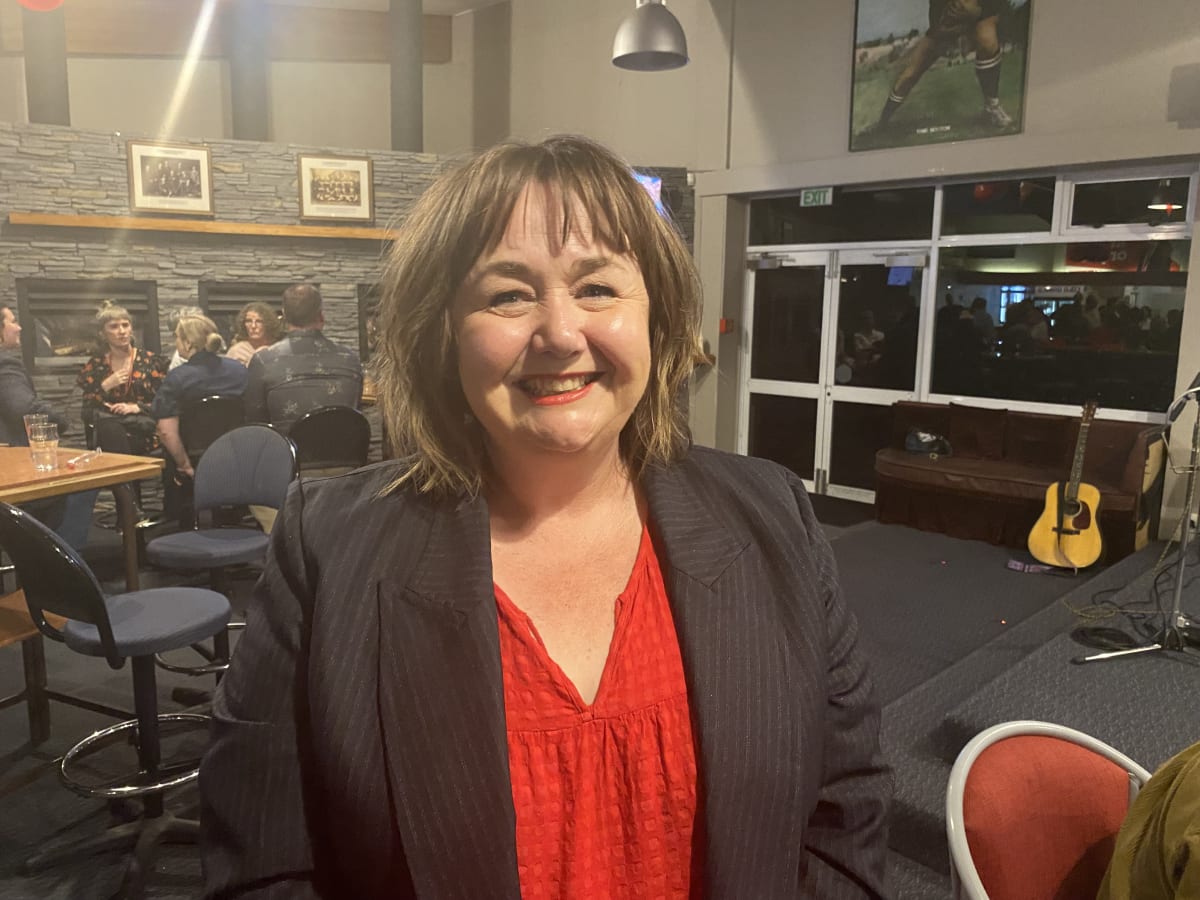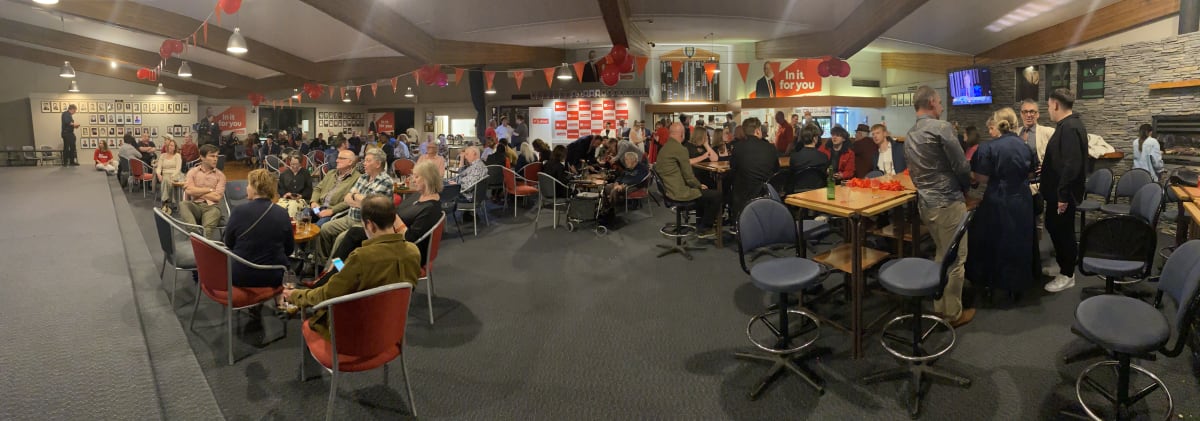
A funereal air descends on Labour’s election night event in Christchurch
The Ajax was on the table.
So many had left the Labour election night event in Christchurch that, when leader Chris Hipkins’ speech in Lower Hutt was beamed onto the big screen, the clean-up was already under way.
(In a blip in time, the big screen carried the signal from one TV channel while the audio was tuned to the other, meaning Hipkins’ words arrived before his mouth formed them.)
READ MORE: * ‘Our children can grow up to live the lives they dream of’ * NZ elects most right-wing govt since early 1990s
James Dunning was still there, though, in the back corner of the Linfield Cultural Recreational Sports Club, in Bromley, close to an almost-empty food table still sporting a full bowl of poppadoms.
His grey hair, grey top, and dark grey coat suited the mood.
Labour Party member Dunning, who lives in nearby Wainoni, was there as a supporter of Christchurch East candidate Reuben Davidson, who, as of midnight, was leading National’s Matt Stock by almost 2000 votes.
“People were expecting Labour to win,” he said, “there’s always going to be changes no matter what you try and do.”
Not everyone felt so philosophical.
One person we spoke to called it a “real fuck-Labour moment”.
Meanwhile, when former Prime Minister Sir John Key flashed up on the screen, one Labour attendee brandished a middle finger, and let it linger.
The numbers on the screen, with National hovering at about 40 percent of the party vote and Labour languishing in the 20s, contrasted with the flash of colour overhead – red balloons and bunting.

Earlier, near the sports club’s entrance, away from the noise inside, Labour’s campaign manager Megan Woods didn’t want to talk about the numbers.
“We’ll have to go and have a look at whether there’s geographical differences around the country. We can see on the way the current numbers are sitting that there’s a number of Auckland seats that probably are results that we wouldn’t have expected.”
Why was that?
“This is all post-match analysis. Talk to us about that in the coming days. At the moment we’re concentrating on looking at that vote coming in. There’s still more than half of it to be counted.”
(When we took her photo, Woods said the harsh light of our flash would probably show the smile lines on her face. But she laughed it off. “That’s not the worst thing to happen to me tonight.” In the end, we used a phone photo.)
Dunning offered a view about what happened to Labour.
Like they said on TV, Hipkins had only been in the job for nine months, he said. And when the Labour leader worked with his predecessor, Jacinda Ardern, poor people were getting money for winter heating costs, and increased benefits.
Given a longer run, he reckoned things would have been better for Hipkins, and the party.
Applause rippled through the Linfield Cultural Recreational Sports Club as Hipkins, on the big screen, made his concession speech.
The man giving the speech looks deflated, unlike the beaming bloke on the signs plastered around the room, carrying the slogan “In it for you”.
Labour sought to bring people together, Hipkins said – to unite and not divide.
The clapping was hearty but accompanied by grim stares.

Under National things would be different matter, Dunning told me, minutes earlier.
What did he mean by different? What did tonight mean for the next three years?
Dunning paused for 10 long seconds.
“That one’s a bit hard to say because I don’t know anything about Luxton.” (He means National Party leader and the presumed next prime minister, Chris Luxon.)
He thought the National Party made life hard for poor people, many of whom couldn’t afford rent.
Homelessness was a big concern for Dunning, who suggested empty buildings be turned into accommodation.
“If National wants to keep their thunder, they’ve got to start trying to think of ways to accommodate these people, in order to keep their votes.”
But he didn’t think they would. Dunning reckoned Luxon would go the same way as Sir John Key, who he wrote off as pro-business.
Around the room there were shouts of “yes!”, as Hipkins said: “We put people first. We cared. We refused to leave people behind. Because that is what we do, it is what the Labour Party does.”
Labour would take time to reflect and refresh, Hipkins said.
“We now have a new and important role in opposition to hold the Government to account, and to fight for those who stand to lose from the proposed cuts.”
Tears welled in the eyes of the woman sitting next to Dunning.
Hipkins finished by saying Labour’s job was to regroup, rebuild and come back fighting stronger than ever.
It was too much. The welling tears flowed.
Dunning fished in his pocket but was too slow – the woman pulled a tissue from the bag in front of her.
Even if her tears had flowed, and pooled around her bag, he needn’t have worried.
The Ajax was on the table.







